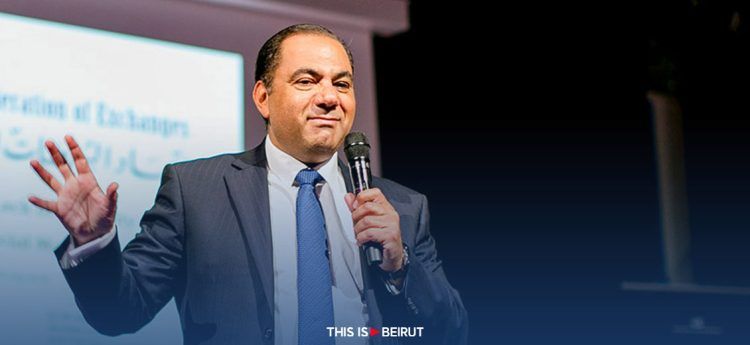
In his editorial for the Association of Banks in Lebanon (ABL), titled “The Biggest Challenge: Maintaining Exchange Rate Stability and Financial Communication in Times of War,” Secretary General Fadi Khalaf emphasized the immense challenge faced by Lebanon’s banking sector amidst the ongoing conflict with Israel.
Khalaf underscored the pivotal role of the Central Bank in maintaining exchange rate stability, especially under increased economic and financial pressures linked to the war.
He acknowledged that the greatest test lies in sustaining stability in light of Lebanon’s depleting hard currency reserves and the growing economic strain.
Despite these adversities, Lebanese banks have continued to provide minimal liquidity and remain compliant with BDL circulars, all while striving to maintain essential services in areas directly affected by bombardments and infrastructure damage.
Khalaf highlighted that maintaining communication with correspondent banks is critical for ensuring the flow of liquidity and meeting Lebanon’s financial needs.
This connection serves as a lifeline, linking Lebanon’s banking sector to the global financial system to ensure the continuity of financial services and fund transfers, especially amid tightening restrictions on international transfers and worsening security conditions.
Without this vital link, Lebanon risks financial isolation, which could disrupt essential services and hinder the import of crucial goods needed for the population’s daily needs.
Despite the significant challenges, Khalaf remains optimistic about the future of Lebanon’s banking sector, emphasizing that the reconstruction phase will require considerable international support and the active involvement of both local and global banks.
Preserving the banking sector is essential for restoring trust in Lebanon’s financial system and preparing it for the future.
Khalaf underscored the pivotal role of the Central Bank in maintaining exchange rate stability, especially under increased economic and financial pressures linked to the war.
He acknowledged that the greatest test lies in sustaining stability in light of Lebanon’s depleting hard currency reserves and the growing economic strain.
Despite these adversities, Lebanese banks have continued to provide minimal liquidity and remain compliant with BDL circulars, all while striving to maintain essential services in areas directly affected by bombardments and infrastructure damage.
Khalaf highlighted that maintaining communication with correspondent banks is critical for ensuring the flow of liquidity and meeting Lebanon’s financial needs.
This connection serves as a lifeline, linking Lebanon’s banking sector to the global financial system to ensure the continuity of financial services and fund transfers, especially amid tightening restrictions on international transfers and worsening security conditions.
Without this vital link, Lebanon risks financial isolation, which could disrupt essential services and hinder the import of crucial goods needed for the population’s daily needs.
Despite the significant challenges, Khalaf remains optimistic about the future of Lebanon’s banking sector, emphasizing that the reconstruction phase will require considerable international support and the active involvement of both local and global banks.
Preserving the banking sector is essential for restoring trust in Lebanon’s financial system and preparing it for the future.
Read more



Comments